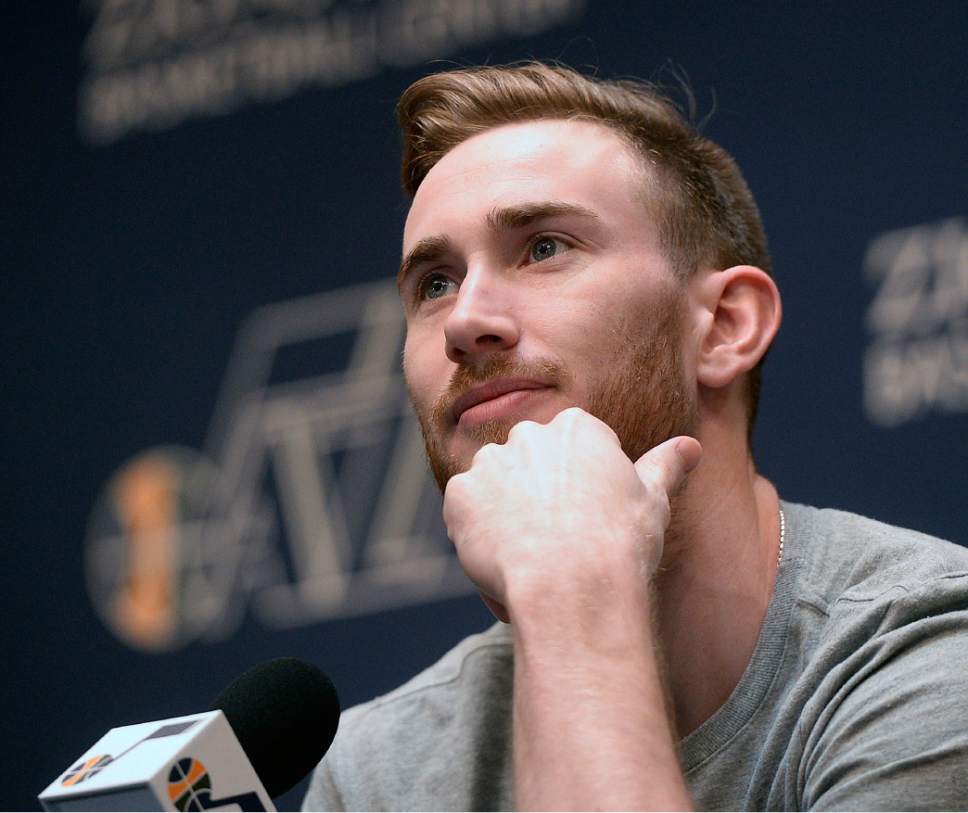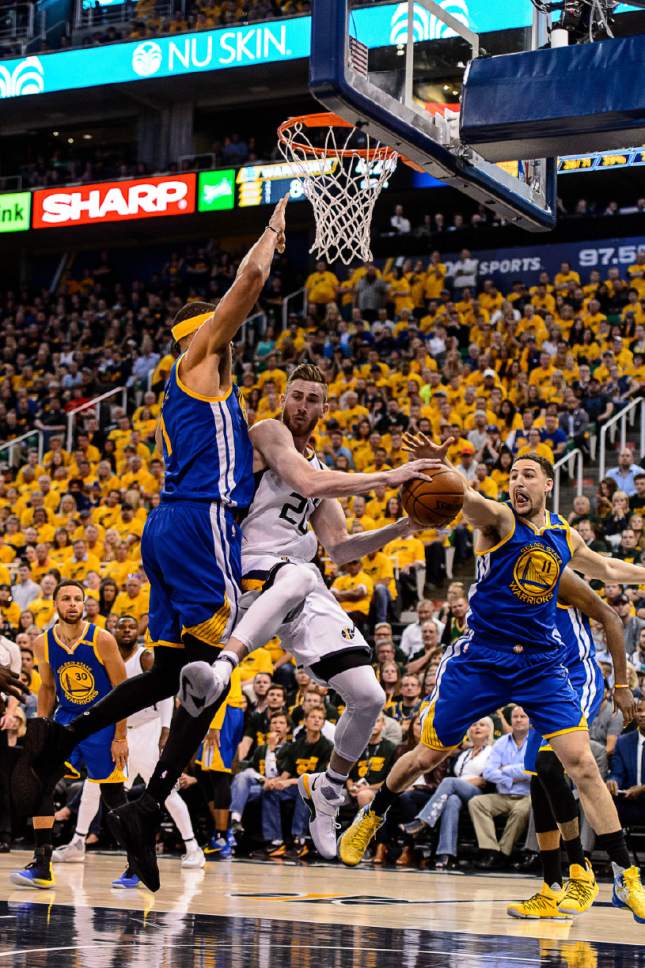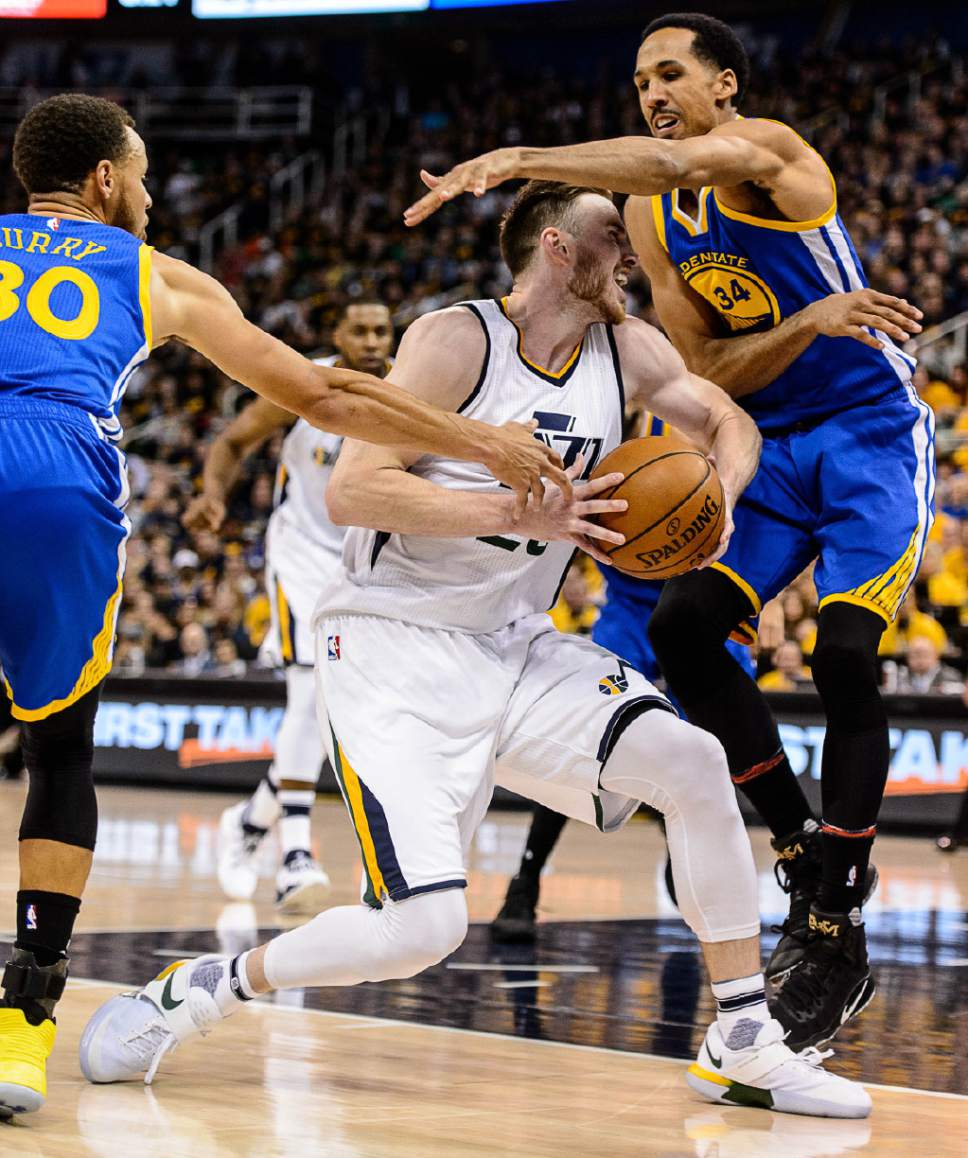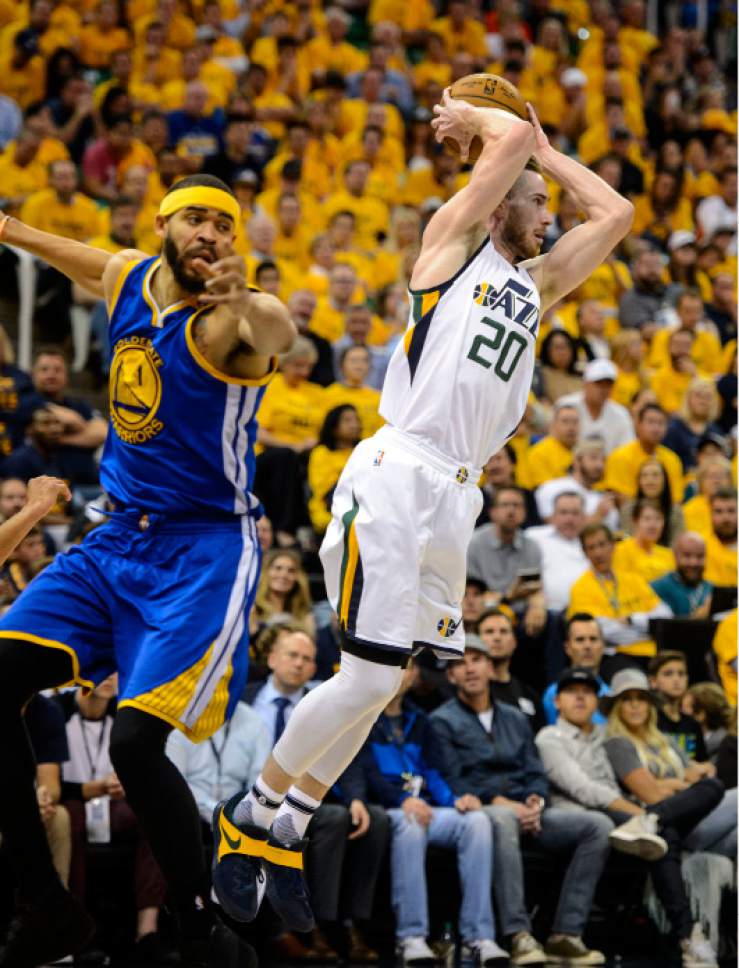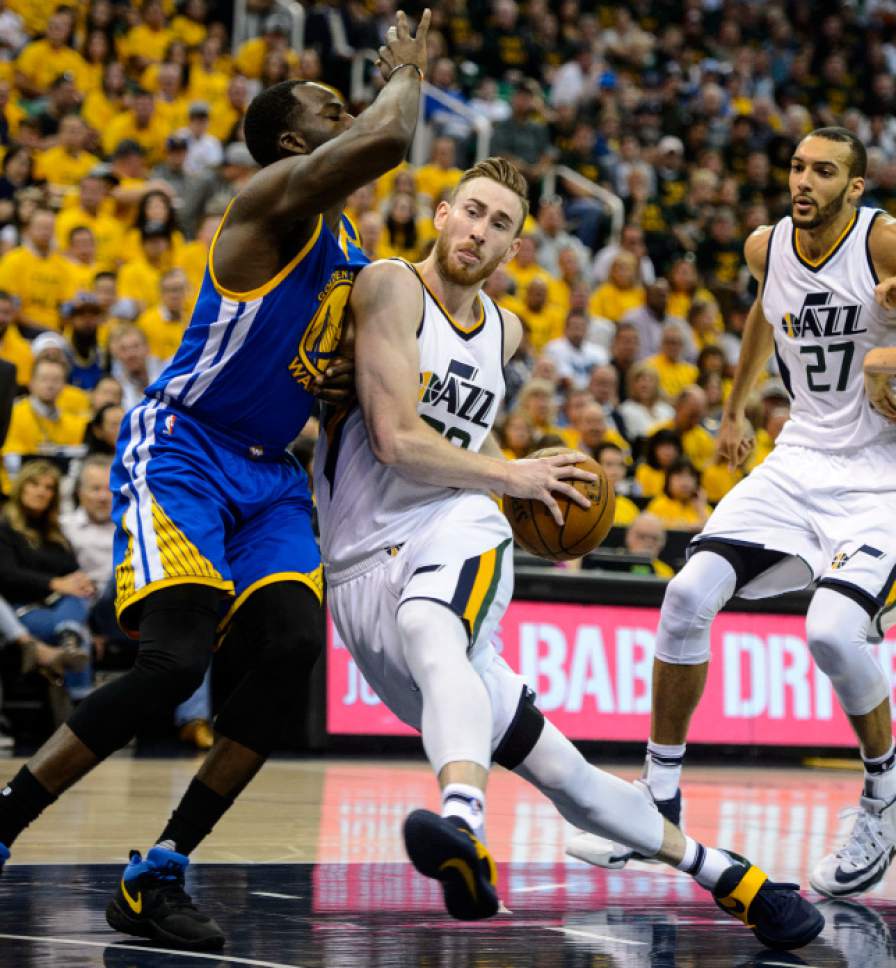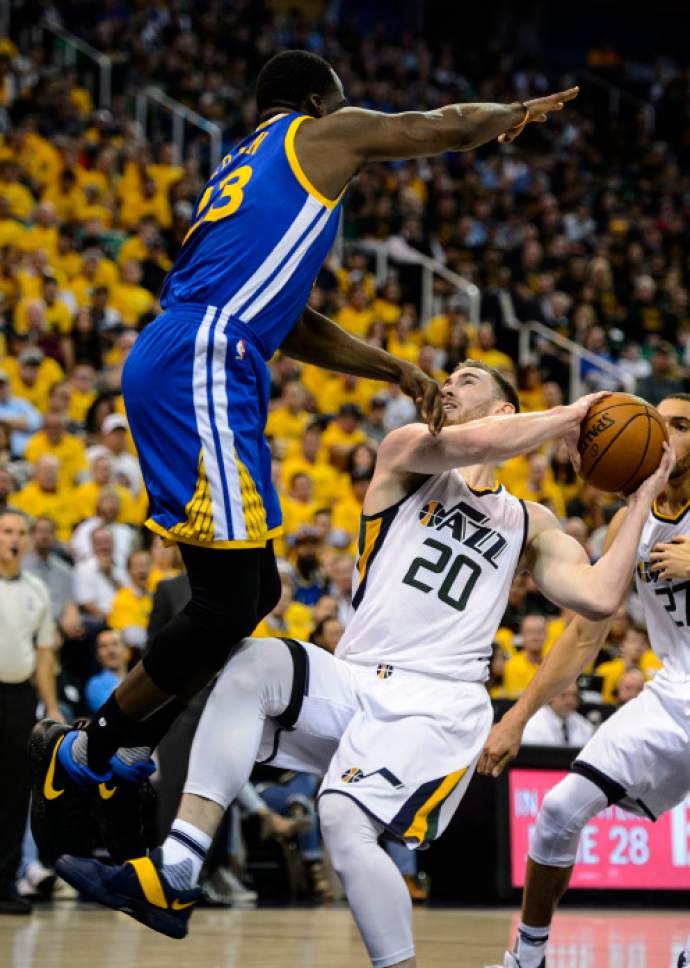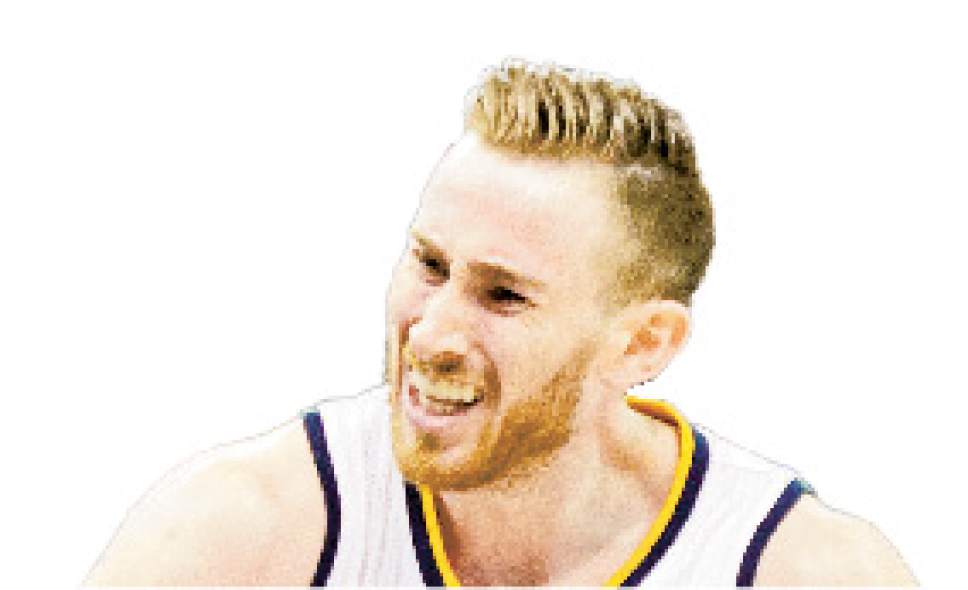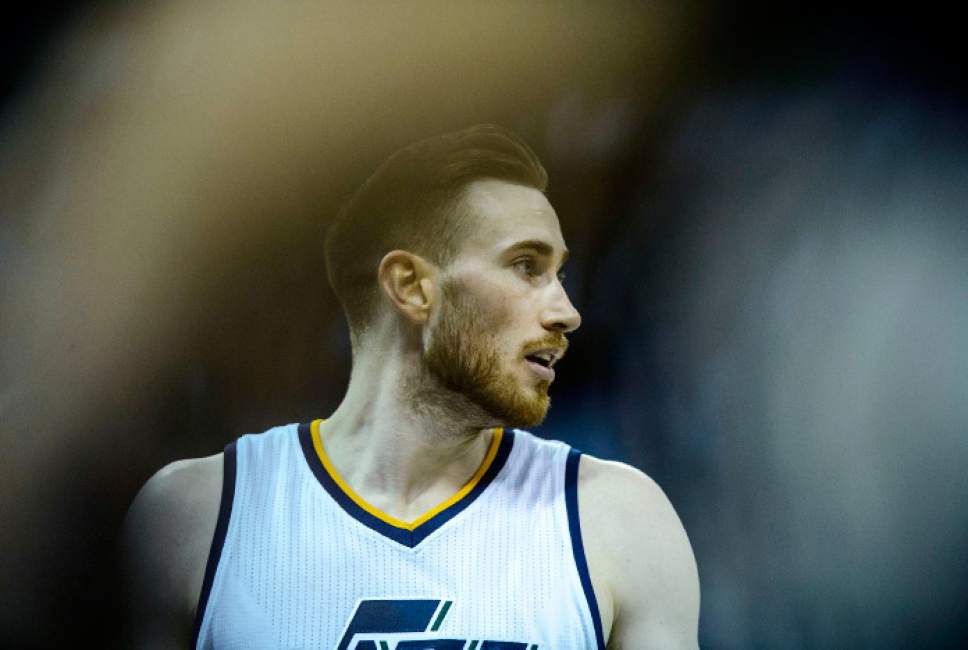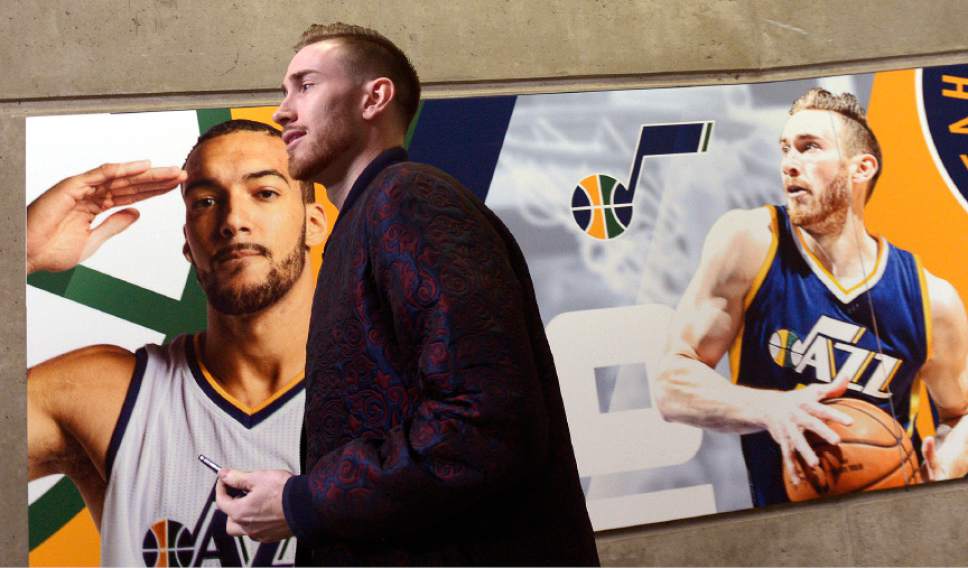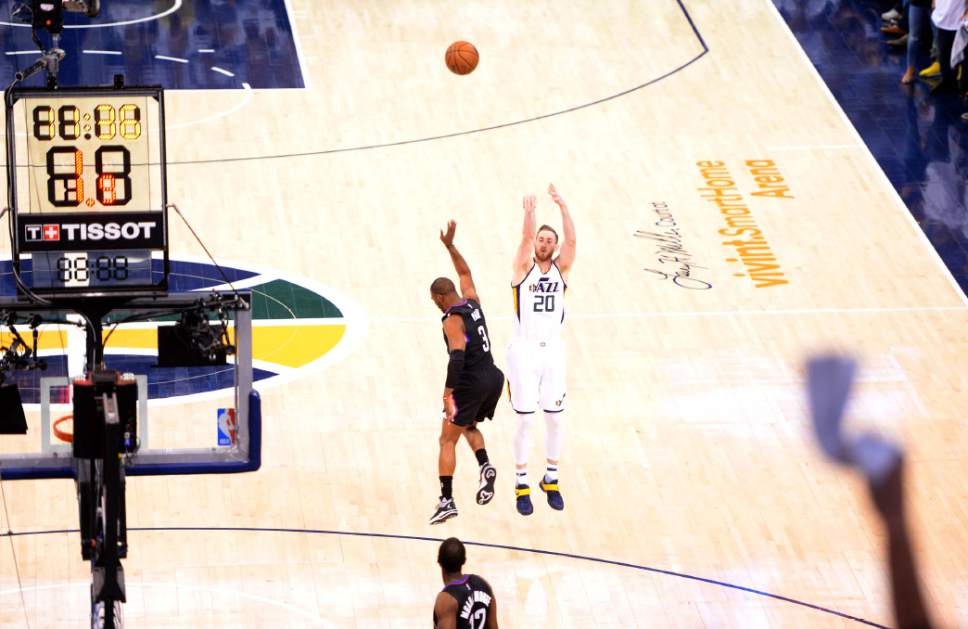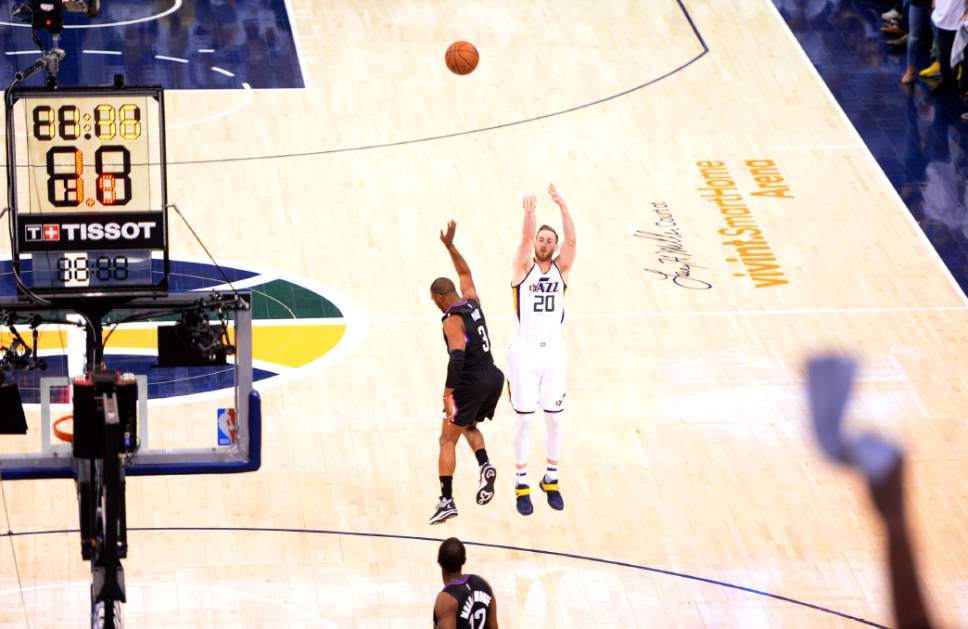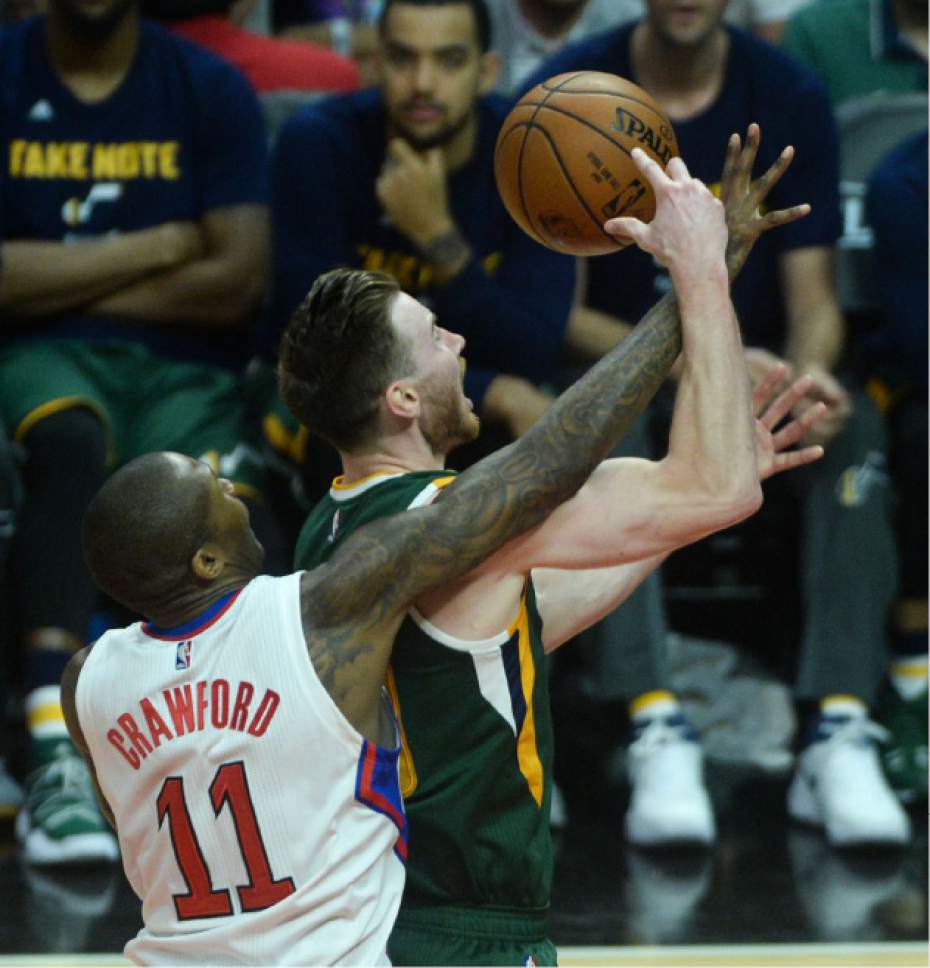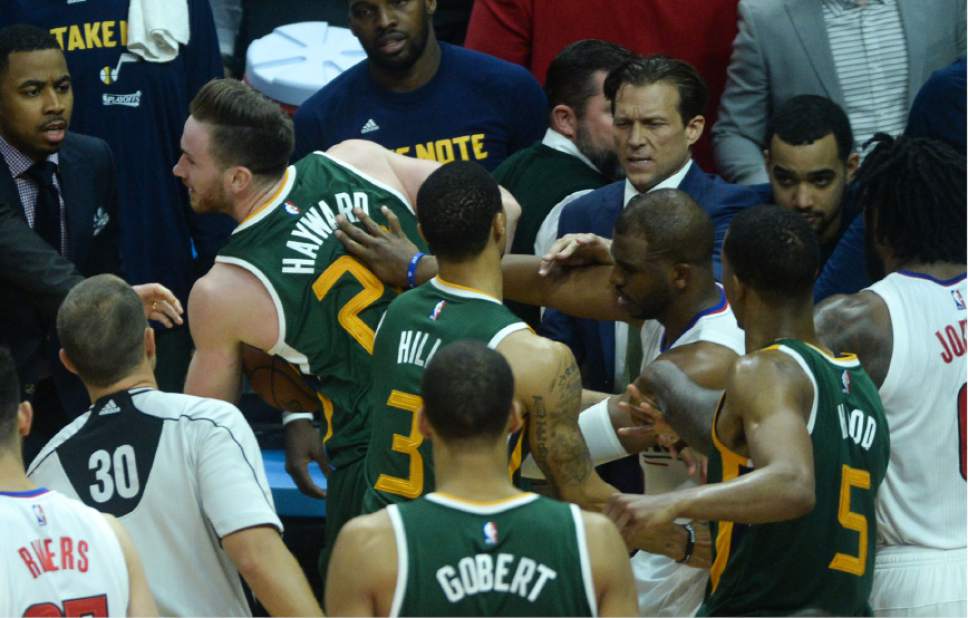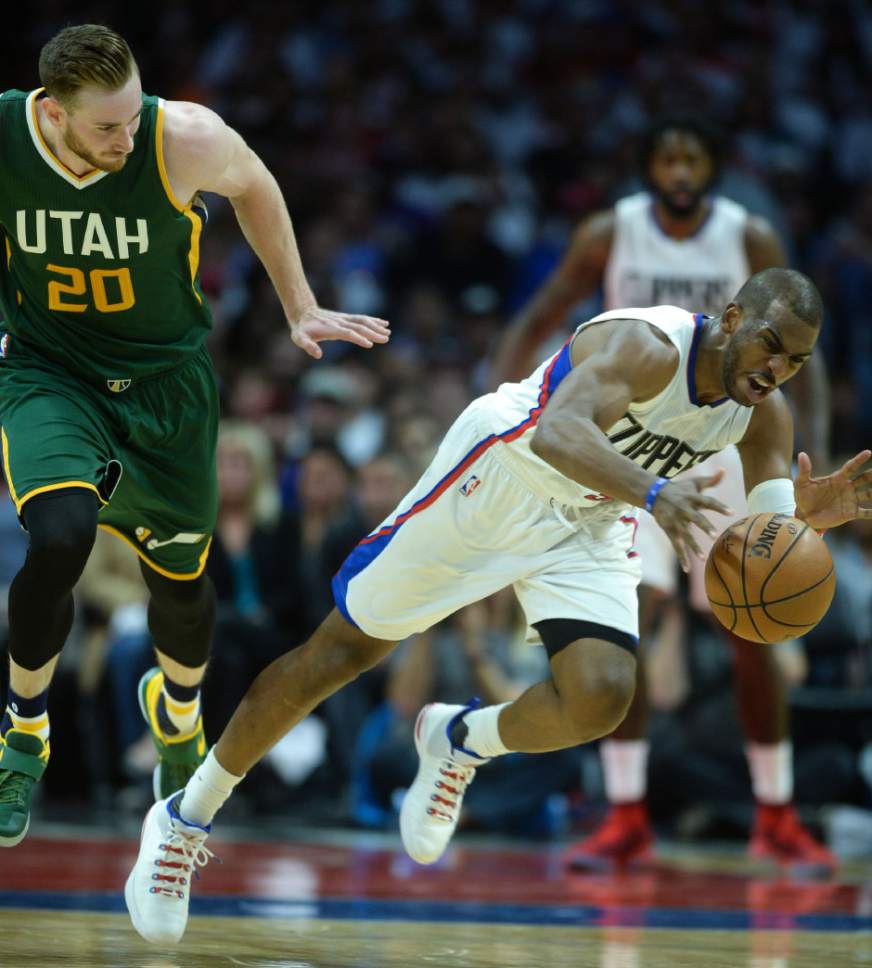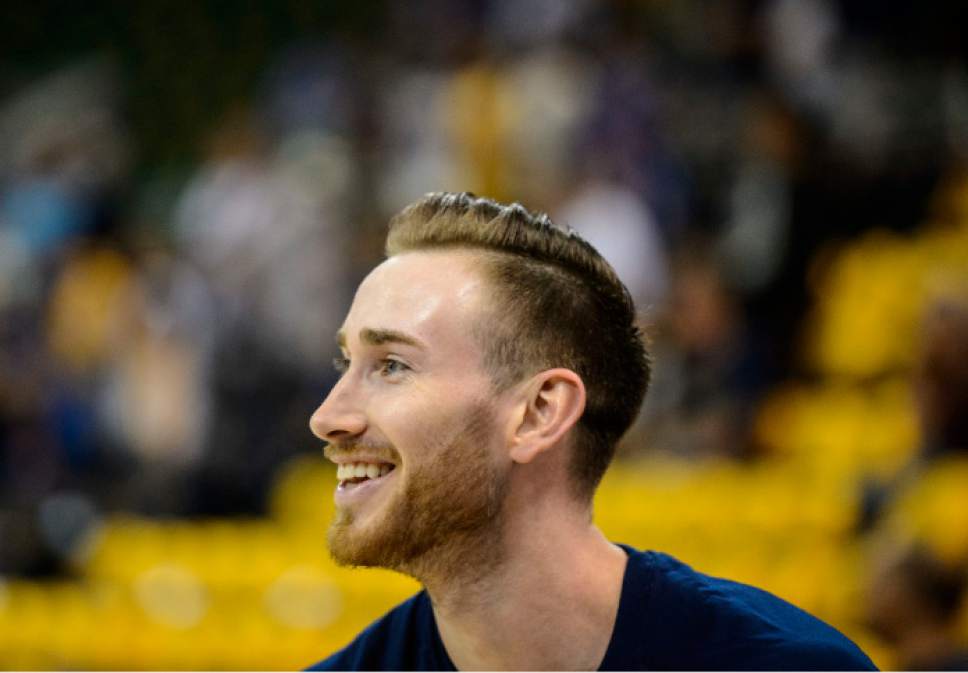This is an archived article that was published on sltrib.com in 2017, and information in the article may be outdated. It is provided only for personal research purposes and may not be reprinted.
The story Brad Stevens loves to tell about Gordon Hayward and their Butler University days unfolded in Salt Lake City. In an Elite Eight game of the 2010 NCAA Tournament, the sophomore forward dribbled between his legs, stepped back and hit a 3-pointer over Kansas State's Curtis Kelly.
Stevens turned to the bench and told his assistants, "We'd better go to the Final Four, because he's gone."
The third quarter of Game 2 of the Western Conference semifinals, when Hayward was drilling shots over Golden State's Draymond Green and Kevin Durant during a 33-point night, was similarly revealing to me. How did this guy become so good?
And he had better not be gone.
Seven years after the Jazz drafted him from Butler and three years after the team matched an offer sheet from Charlotte that became a subject of considerable debate around here, Hayward will become one of the NBA's most attractive free agents as of July 1.
Do I believe he'll stay in Utah? Yes.
Am I compiling my criteria to approve or disapprove his decision to leave? Also, yes.
I would endorse Hayward's departure if it involves reuniting with Stevens in Boston and joining a Celtics team that performed better in the playoffs against Golden State than the Jazz did. If the Celtics come reasonably close to winning a championship, while the Jazz's hopes of overtaking Golden State in the Western Conference appear unlikely, that combination would create a strong argument for Hayward's moving. So former Jazzmen Kyle Korver and Deron Williams of Cleveland could become key players in this spring's drama, if the Cavaliers face Boston in the Eastern Conference finals.
The Jazz need whatever help they can get, because they have to keep Hayward. Imagine this team taking the court without him in October, in a renovated Vivint Smart Home Arena.
When I wrote similar words in July 2014, as Hayward shopped for offers as a restricted free agent, some percentage of Jazz fans took the opposing viewpoint. They wondered why the Jazz would spend a lot of money for an undistinguished player. And when the Jazz matched Charlotte's offer and I quoted Hayward as saying he wouldn't feel pressure living up to his contract, they became more angry.
"The pressure is trying to win," Hayward said. "That's the pressure."
How'd that work out? Hayward's response was helping the Jazz go from 25 to 51 wins in three years, while increasing his scoring average for a sixth consecutive season and becoming an All-Star. The concern now is he'll sign elsewhere, undoing the Jazz's rebuilding project.
The Tribune last summer named Hayward the Most Influential Person in Utah Sports, the first athlete so designated in the 12 years of the rankings. Good call, wouldn't you say? He's even more important now, as this two-month vigil about his future will attest. The anxiety already kicked in this past week, when everything he said after Game 4 vs. Golden State and during the team's exit interviews was parsed for clues about his level of commitment to the Jazz.
That's what I've done ever since September, when he smiled after being reminded that the unofficial Hayward Happiness Index would be monitored all season. By bringing in veteran players, general manager Dennis Lindsey did "a tremendous job of getting those guys for us," Hayward said during media day. "Being involved in that process a little bit. … I'm just really happy with the moves that they made."
More creative moves may be required to keep building the team around Hayward, because retaining him and point guard George Hill will be tricky as Rudy Gobert's new contract takes effect.
The Jazz have done everything they could to impress Hayward, building "a compelling case," in Lindsey's words — even before the Jazz claimed their first playoff series victory in seven years, beating the Los Angeles Clippers in seven games. But then they were swept by the Warriors. As Hayward said, the Jazz showed signs of competing with Golden State, but never came close to beating them.
The Warriors should advance to the NBA Finals by defeating San Antonio. Cleveland or Boston, assuming the Celtics beat Washington in Monday's Game 7 of a semifinal series, will represent the Eastern Conference. My advice: Cheer for the Cavs.
Hayward has a very good relationship with Jazz coach Quin Snyder after three seasons together; he recently labeled Snyder's arrival the "turning point" of his NBA career. I've also spent enough time around Indianapolis to recognize that nobody should underestimate his bond with Stevens. But if the Celtics really are no closer than the Jazz to winning an NBA title, Hayward should stay.
That standard applies to his hometown Indiana Pacers or any other team that may pursue him. The Warriors might not play in the East, but they're still in the NBA.
The postscript to that story Stevens once told me about Hayward's shot vs. Kansas State is that Butler did go to the Final Four, and the Bulldogs did so again the next season — without Hayward. But in the Jazz's case, winning another 50-plus games in 2017-18 seems impossible, if he's playing anywhere else.
Twitter: @tribkurt


